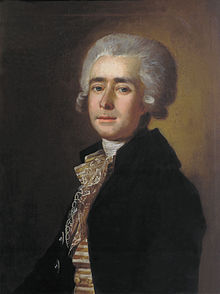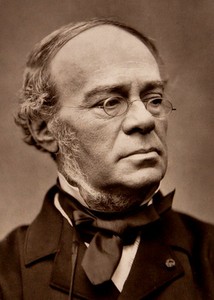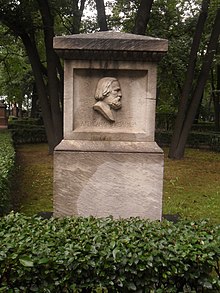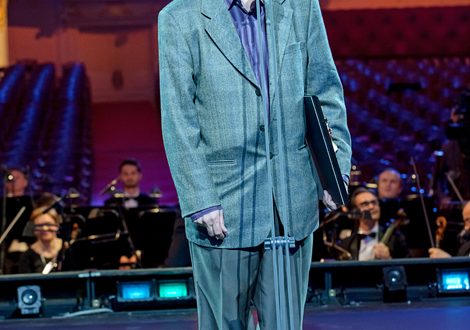
Dmitry Stepanovich Bortnyansky (Dmitry Bortnyansky) |
Dmitry Bortnyansky
… You wrote wondrous hymns And, contemplating the world of bliss, He inscribed it to us in sounds … Agafangel. In memory of Bortnyansky
D. Bortnyansky is one of the most talented representatives of the Russian musical culture of the pre-Glinka era, who won the sincere love of his compatriots both as a composer, whose works, especially choral ones, enjoyed exceptional popularity, and as an outstanding, multi-talented person with a rare human charm. An unnamed contemporary poet called the composer “Orpheus of the Neva River”. His creative legacy is extensive and varied. It has about 200 titles – 6 operas, more than 100 choral works, numerous chamber and instrumental compositions, romances. Bortnyansky’s music is distinguished by impeccable artistic taste, restraint, nobility, classical clarity, and high professionalism developed by studying modern European music. The Russian music critic and composer A. Serov wrote that Bortnyansky “studied on the same models as Mozart, and very much imitated Mozart himself.” However, at the same time, the musical language of Bortnyansky is national, it clearly has a song-romance basis, intonations of Ukrainian urban melos. And this is not surprising. After all, Bortnyansky is Ukrainian by origin.
The youth of Bortnyansky coincided with the time when a powerful public upsurge at the turn of the 60-70s. XNUMXth century awakened national creative forces. It was at this time that a professional composer school began to take shape in Russia.
In view of his exceptional musical abilities, Bortnyansky was sent at the age of six to the Singing School, and after 2 years he was sent to St. Petersburg to the Court Singing Chapel. Luck from childhood favored a beautiful smart boy. He became a favorite of the Empress, together with other singers participated in entertainment concerts, court performances, church services, studied foreign languages, acting. The director of the choir M. Poltoratsky studied singing with him, and the Italian composer B. Galuppi – composition. On his recommendation, in 1768 Bortnyansky was sent to Italy, where he stayed for 10 years. Here he studied the music of A. Scarlatti, G. F. Handel, N. Iommelli, the works of polyphonists of the Venetian school, and also made a successful debut as a composer. In Italy, the “German Mass” was created, which is interesting in that Bortnyansky introduced Orthodox old chants into some chants, developing them in a European manner; as well as 3 opera seria: Creon (1776), Alcides, Quintus Fabius (both – 1778).
In 1779 Bortnyansky returned to St. Petersburg. His compositions, presented to Catherine II, were a sensational success, although in fairness it should be noted that the empress was distinguished by rare anti-musicality and applauded solely on prompting. Nevertheless, Bortnyansky was favored, received a reward and the position of bandmaster of the Court Singing Chapel in 1783, upon the departure of J. Paisiello from Russia, he also became bandmaster of the “small court” in Pavlovsk under the heir Pavel and his wife.
Such a diverse occupation stimulated the composition of music in many genres. Bortnyansky creates a large number of choral concerts, writes instrumental music – clavier sonatas, chamber works, composes romances on French texts, and since the mid-80s, when the Pavlovsk court became interested in the theater, he creates three comic operas: “The Seigneur’s Feast” (1786) , “Falcon” (1786), “Rival Son” (1787). “The beauty of these operas by Bortnyansky, written in French text, is in an unusually beautiful fusion of noble Italian lyrics with the languor of the French romance and the sharp frivolity of the couplet” (B. Asafiev).
A versatile educated person, Bortnyansky willingly took part in literary evenings held in Pavlovsk; later, in 1811-16. – attended meetings of “Conversations of lovers of the Russian word”, headed by G. Derzhavin and A. Shishkov, collaborated with P. Vyazemsky and V. Zhukovsky. On the verses of the latter, he wrote the popular choral song “A Singer in the Camp of Russian Warriors” (1812). In general, Bortnyansky had a happy ability to compose bright, melodic, accessible music, without falling into banality.
In 1796, Bortnyansky was appointed manager and then director of the Court Singing Chapel and remained in this post until the end of his days. In his new position, he energetically took up the implementation of his own artistic and educational intentions. He significantly improved the position of the choristers, introduced public Saturday concerts in the chapel, and prepared the chapel choir to participate in concerts. Philharmonic Society, starting this activity with the performance of J. Haydn’s oratorio “The Creation of the World” and ending it in 1824 with the premiere of L. Beethoven’s “Solemn Mass”. For his services in 1815, Bortnyansky was elected an honorary member of the Philharmonic Society. His high position is evidenced by the law adopted in 1816, according to which either the works of Bortnyansky himself, or music that received his approval, were allowed to be performed in the church.
In his work, starting from the 90s, Bortnyansky focuses his attention on sacred music, among the various genres of which choral concerts are especially significant. They are cyclic, mostly four-part compositions. Some of them are solemn, festive in nature, but more characteristic of Bortnyansky are concertos, distinguished by penetrating lyricism, special spiritual purity, and sublimity. According to Academician Asafiev, in Bortnyansky’s choral compositions “there was a reaction of the same order as in the then Russian architecture: from decorative forms of baroque to greater rigor and restraint – to classicism.”
In choral concerts, Bortnyansky often goes beyond the limits prescribed by church rules. In them, you can hear marching, dance rhythms, the influence of opera music, and in the slow parts, sometimes there is a resemblance to the genre of the lyrical “Russian song”. The sacred music of Bortnyansky enjoyed great popularity both during the composer’s lifetime and after his death. It was transcribed for piano, harp, translated into a digital musical notation system for the blind, and constantly published. However, among professional musicians of the XIX century. there was no unanimity in its assessment. There was an opinion about her sugariness, and Bortnyansky’s instrumental and operatic compositions were completely forgotten. Only in our time, especially in recent decades, the music of this composer has again returned to the listener, sounded in opera houses, concert halls, revealing to us the true scale of the talent of the remarkable Russian composer, a true classic of the XNUMXth century.
O. Averyanova





